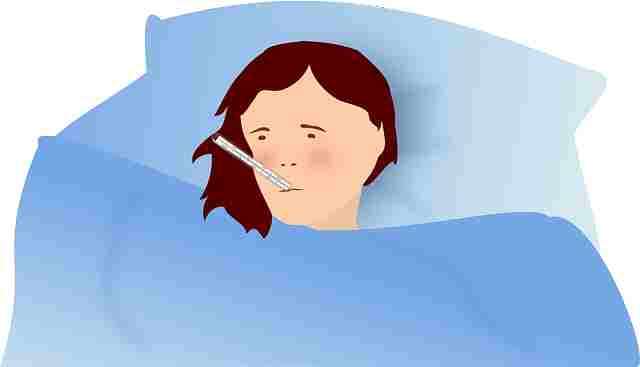Introduction:
The winter season brings with it a sense of wonder and joy, especially for children who eagerly anticipate the magic of snowfall and the excitement of holidays. However, as parents, caregivers, and guardians, it’s crucial to be mindful of the unique health challenges that winter poses for children. From the increased risk of respiratory infections to the importance of outdoor play, this article will delve into comprehensive child healthcare strategies to ensure the well-being of our little ones during the winter season.
Immunity-Boosting Nutrition:

Children, with their developing immune systems, are more susceptible to winter ailments such as colds and flu. Proper nutrition is key to fortifying their immune defenses. Ensure that your child’s diet includes a variety of fruits, vegetables, whole grains, and lean proteins. Vitamin-rich foods, especially those containing vitamin C, can play a crucial role in supporting their immune health. Consider incorporating colorful fruits like oranges, strawberries, and kiwi into their meals. Additionally, provide them with a well-balanced diet that includes dairy, nuts, and seeds for essential nutrients.
Hydration Habits:
Keeping children adequately hydrated is just as important in winter as it is during the warmer months. While they may not feel as thirsty in the colder weather, maintaining proper hydration is essential for overall health. Encourage your child to drink water regularly and consider warm beverages such as herbal teas or hot chocolate. Homemade soups and broths not only provide hydration but also offer nourishment. Be attentive to signs of dehydration, such as dry lips or dark urine, and adjust their fluid intake accordingly.
Outdoor Play and Exercise:
Winter should not be a reason to limit outdoor play and physical activity. In fact, it is crucial for children to engage in regular exercise to support their physical and mental development. Dress them in layers to protect against the cold, and ensure they are equipped with hats, gloves, and waterproof boots. Outdoor activities like sledding, building snowmen, and skiing can provide both exercise and enjoyment. If outdoor play is not feasible, consider indoor activities like dancing, yoga, or age-appropriate workout routines to keep them active and healthy.
Cold and Flu Prevention Measures:
Children are often in close proximity to one another, whether at school, daycare, or playdates. This increases the risk of contagious illnesses, such as colds and the flu, spreading quickly. Teach your child good hygiene practices, including proper handwashing with soap and water for at least 20 seconds. Energize the utilization of hand sanitizers when cleanser and water are not free. Ensure they cover their mouth and nose when coughing or sneezing, preferably with a tissue or the inside of their elbow. Regularly disinfect commonly touched surfaces, such as doorknobs and toys.
Skin and Winter Care:
Children’s skin is sensitive and prone to dryness, which can be exacerbated by the cold winter air and indoor heating. Use a mild, fragrance-free moisturizer to keep their skin hydrated. Pay extra attention to areas prone to dryness, such as elbows and knees. Ensure they are dressed in layers to protect against the cold, and use hats and scarves to cover exposed skin when outdoors. In extremely cold weather, limit their time outside and watch for signs of frostbite, such as numbness or pale skin.
Ensuring Adequate Sleep:
Proper sleep is vital for a child’s growth, development, and immune function. Establish a consistent sleep routine, ensuring they get the recommended amount of sleep for their age. Create a comfortable and cozy sleep environment, with a cool room and minimal electronic devices before bedtime. Adequate rest contributes to their overall well-being and helps them cope better with the physical and emotional demands of the winter season.
Mental Health Awareness:
Winter can sometimes bring about a condition known as Seasonal Affective Disorder (SAD), even in children. Be attentive to changes in your child’s mood or behavior, such as increased irritability or withdrawal. Ensure they receive exposure to natural light during the day, and consider using light therapy if needed. Encourage open communication and create a supportive environment where they feel comfortable expressing their feelings. Engage in activities that bring joy and warmth to their winter experience, fostering positive mental health.
Safety First:
Winter comes with its own set of safety concerns, especially for children. Be cautious of slippery surfaces, and ensure they wear appropriate footwear with good traction. Teach them the importance of not touching frozen surfaces or bodies of water without adult supervision. If engaged in winter sports, ensure they use proper safety equipment, such as helmets and pads. Supervise outdoor activities and establish clear guidelines for safe play, reducing the risk of winter-related injuries.
Conclusion:Child Healthcare Strategies
As winter blankets the world in its snowy embrace, it’s essential to approach child healthcare with a holistic perspective. By focusing on nutrition, hydration, outdoor play, hygiene, skin care, sleep, mental health, and safety, parents can create a robust foundation for their child’s well-being during the winter season. Nurturing physical and emotional health ensures that children not only enjoy the wonders of winter but also thrive in the face of its unique challenges.



Average Rating